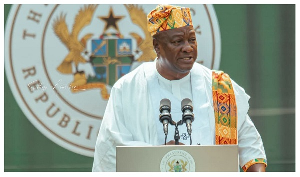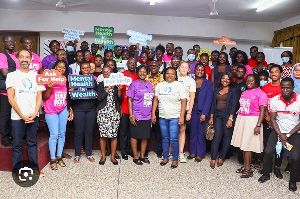The NHIS 10th anniversary commemorative 2-day International Conference ended with a call on government and health policy makers in Ghana to consider expanding the coverage of the Scheme. Though overwhelmingly the international health financing and Universal Health Coverage (UHC) experts who gathered for the conference agreed that in 10 years, Ghana has made significant strides towards nation-wide coverage, the country was urged to make more resources available to the NHIS in order to intensify its coverage efforts. Ghana’s NHIS currently covers some 36% of the country’s population, a number the NHIA describes as active card-bearing members. The term active member refers to a subscriber who has a valid card and could therefore access healthcare immediately at any NHIS-accredited facility. The call for more resources by conference participants was rooted in the aspiration to get more people, especially the vulnerable, onto the Scheme. According to the Conference, resource allocation to the NHIS must grow with membership growth to guarantee the Scheme’s sustainability. The theme for the conference, “Towards Universal Health Coverage: Increasing Enrolment whilst Ensuring Sustainability,” helped to bring to the fore strategies to increase membership and coverage whilst not jeopardizing the future of the Scheme. Ghana was praised for the bi-partisan political support health insurance is receiving which manifested recently in the smooth passage of Act 852 which replaced Act 650 which established the Scheme. Chief Executive of the NHIA, Sylvester Mensah at the closing session of conference observed that the gathering and ideas shared have been refreshing and the NHIS is more invigorated as it begins another leap into the future. He said government takes seriously the health of its citizens and aspires to attain Universal Health Coverage as soon as possible. He mentioned that the hosting of the conference in Ghana underscores the country’s commitment to the idea of UHC. According to him, the knowledge exchange and experience sharing which occurred at the November 4-5 event has been remarkable and participating countries will return home with many ideas on how to move forward their health financing drives and ultimately attain universal coverage. The country has also been urged to make membership of the Scheme compulsory or automatic so more people can contribute and be covered by the NHIS. Dr Jeanette Vega, Managing Director of the Rockefeller Foundation who spoke on ‘shaping UHC policy for post 2015’ stated that, “no country has made it to Universal Health Coverage via voluntary health insurance.” According to her, compulsory and automatic health insurance is essential for expanding coverage. World Bank Country Director, Yusupha Crookes remarked that with experience from the past 10 years, Ghana has become “well-positioned to ensure that its entire people can access quality health services” and that “citizens are protected from impoverishment due to illness whether from out-of-pocket payments for healthcare or from loss of income when a household member is sick.” According to Mr Crookes, “Ghana stands out today as one of the few emerging countries that has taken significant steps towards demand-side financing for health, including passing legislation for universal health insurance coverage, expanding enrolment significantly while taking steps to cover the poor and vulnerable, and earmarking substantial financial resources to support the system.” The 2-day conference was also attended by academics, political functionaries, media and civil society organizations.
Health News of Friday, 8 November 2013
Source: NHIS Communications
















